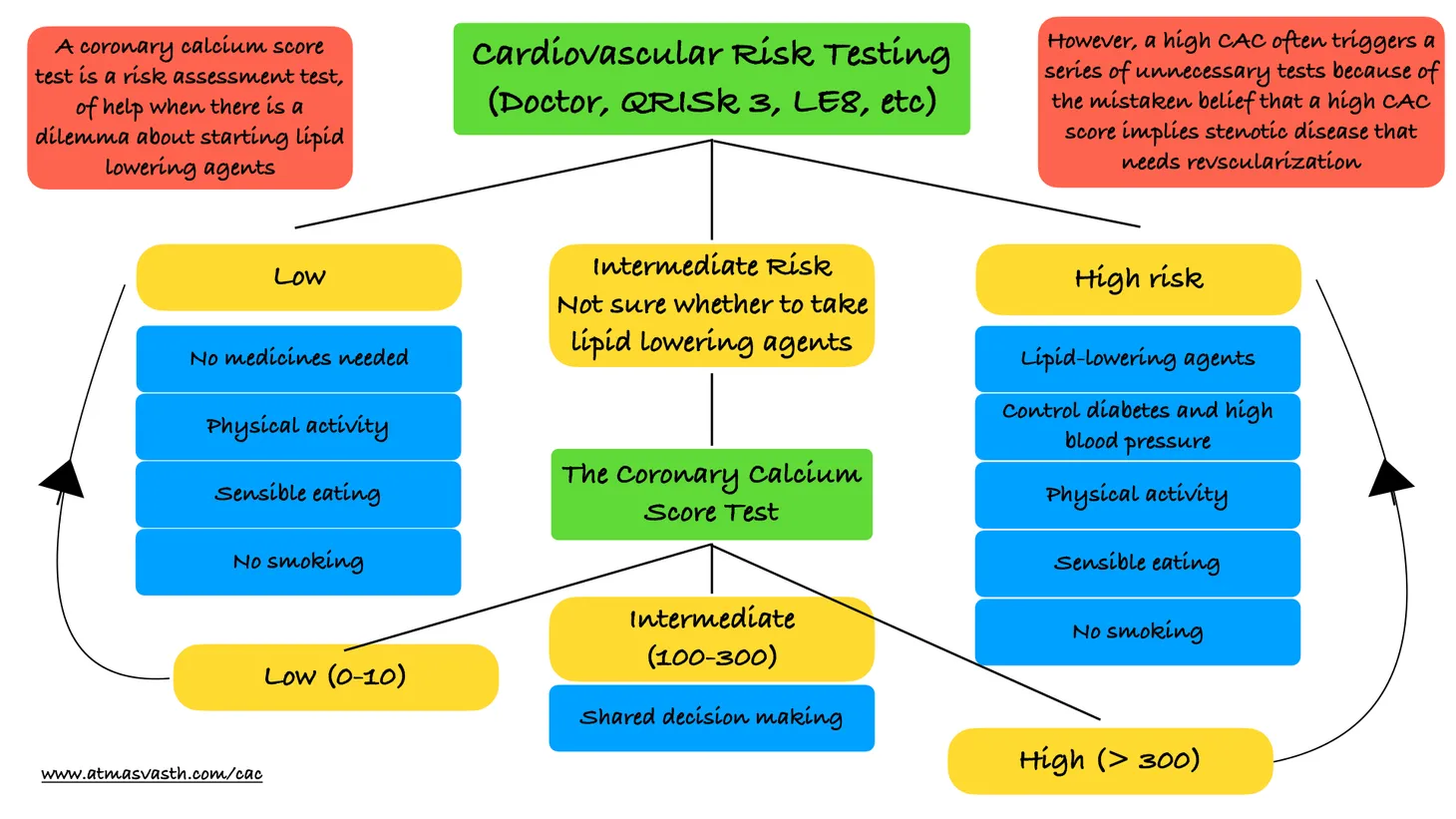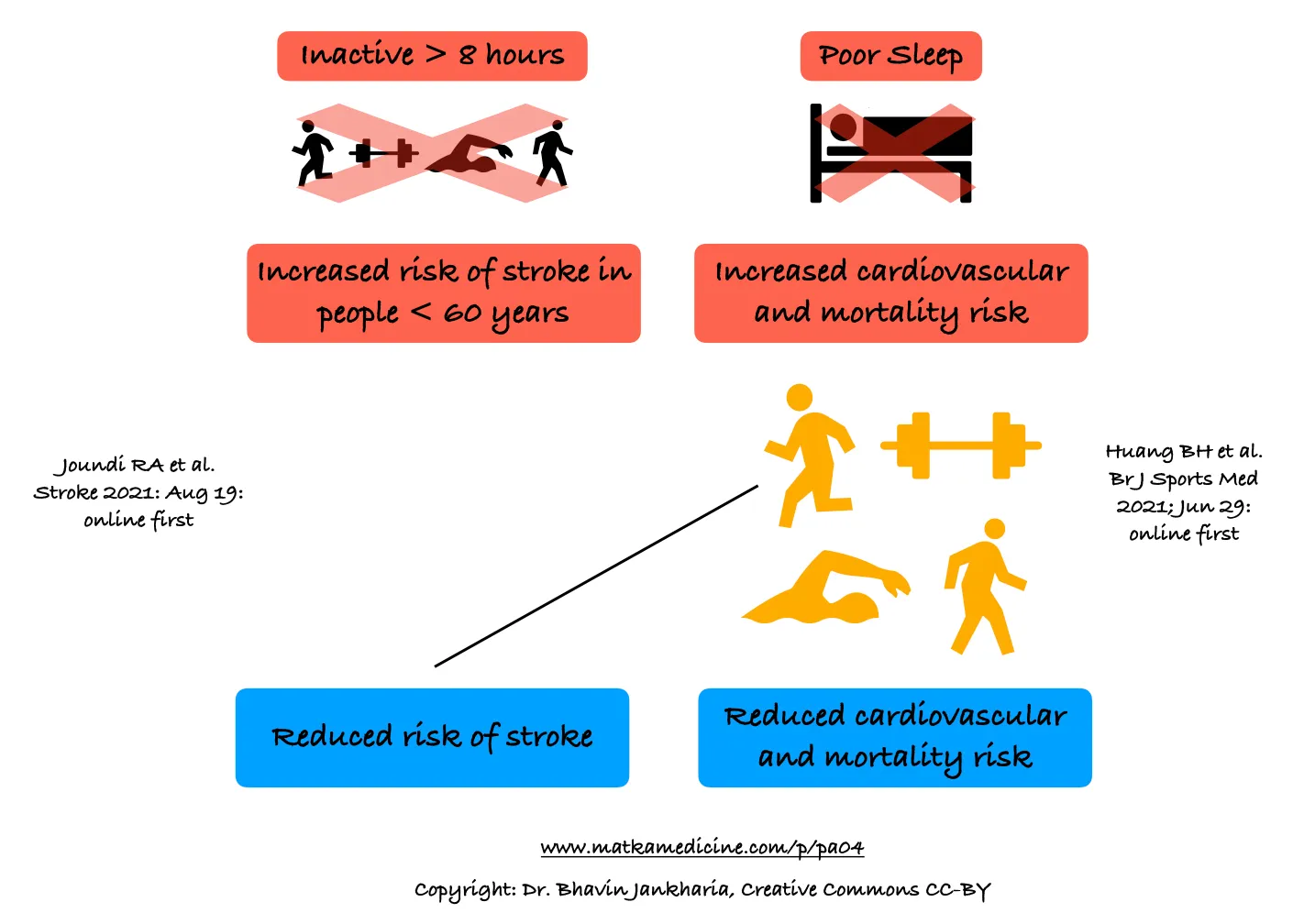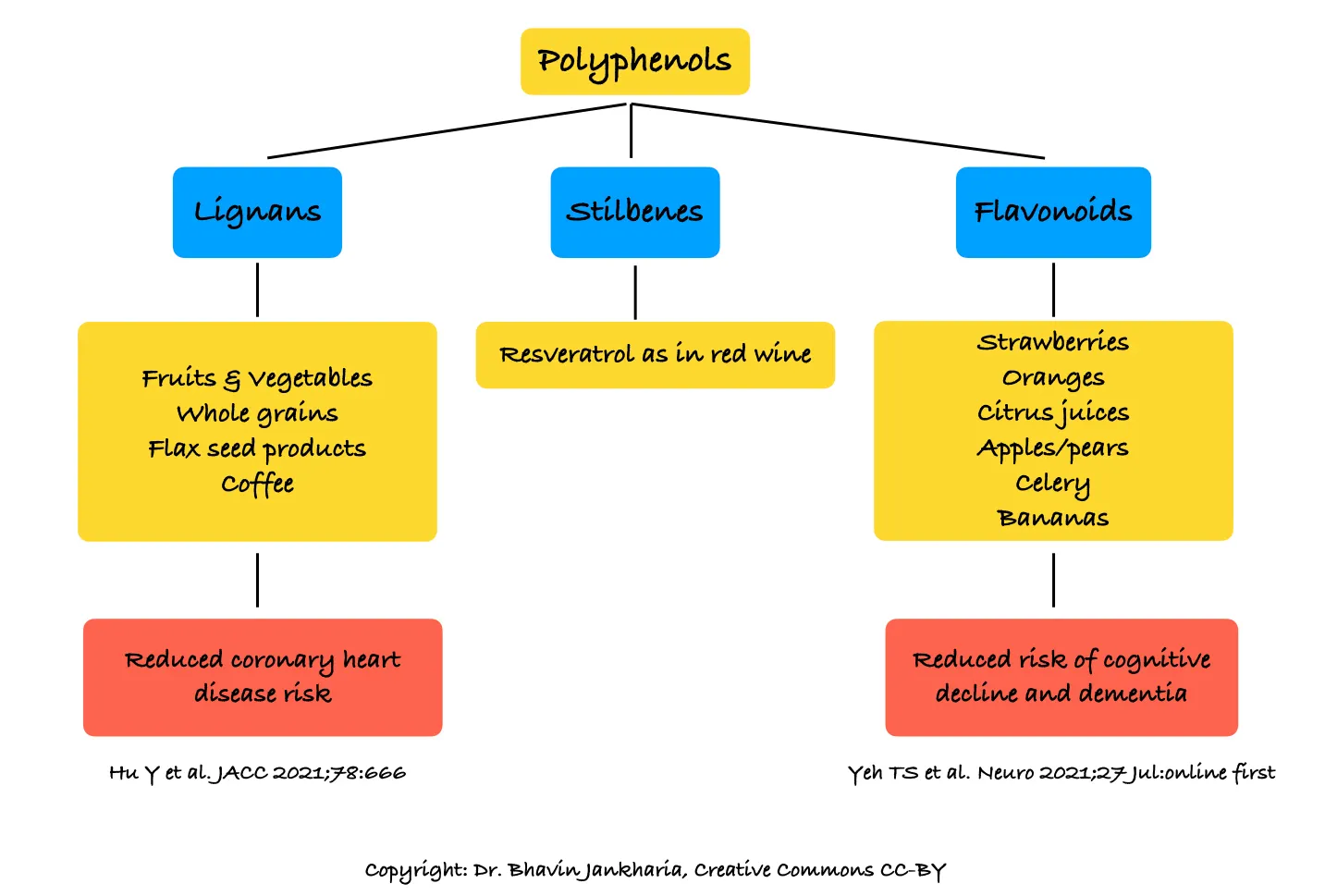Life's Essential 8 and Annual Health Scoring
The LE8 score helps us understand our health status and institute corrective measures as and when needed to live long healthy.

Audio
Text
Over 2 years ago, I wrote about assessing our own cardiovascular risk ourselves using online calculators. Since there are no Indian calculators, I had assessed a bunch of Western ones…the QRISK3 calculator out of the UK appears to work best for us Indians in India. To complete the score you need your blood sugar and HbA1c levels, your cholesterol levels (total, HDl, LDL-C) and your blood pressure, which you should measure yourself at home. If the calculator finds that you are at high risk for a cardiovascular event in the future, then you need to visit your doctor to figure out the best way to mitigate or reduce that risk.
We all love lists. Hence, atmasvasth has a 15-point guide to live, long healthy. Last year, I also wrote about the healthy 7 being the happy 7…which makes sense, because if you are unhealthy, you are usually unhappy as well.
For sometime now, the American Heart Association (AHA) has also maintained an essential list to help live long, healthy. It was initially a 7-point list, but was updated in 2020 to an 8-point list. The list is quite simple and involves four health behaviors and four health factors.
Health Behaviors
1. Eat better
2. Be more active
3. Quit tobacco
4. Get healthy sleep
Health Factors
5. Manage weight
6. Control cholesterol
7. Manage blood sugar
8. Manage blood pressure
There is an online form for scoring, for which you need your cholesterol and blood sugar test numbers, your blood pressure level and your weight. Each parameter has a maximum score of 100 and the total is then divided by 8 to give you a maximum LE8 score of 100. Scores of 80-100 imply high cardiovascular health (CVH), 50-79, moderate and 0-49, low.
A score of 100 in each parameters is as follows.
1.Complete adherence to a DASH (Dietary Approach to Stop Hypertension) diet - lots of fruits and vegetables, reduced salt, etc.
2. 150 minutes or more of moderate to vigorous physical activity per week.
3. Not smoking.
4. Seven-nine hours of sleep per day.
5. BMI < 25 kg/m2.
6. Non-HDL cholesterol (mg/dl) < 130
7. No diabetes and fasting blood sugar < 100 mg/dl or HbA1c < 5.7
8. Blood pressure < 120/80
Anyone can come up with these so-called “sensible” lists. It is only when they are validated that they start becoming relevant, like the QRISK score, which has been validated across multiple studies over the last few years.
A recent paper by Xuan Wang and colleagues in JAMA Int Med [1] looked at 135199 adults in the UK Biobank who were initially free of chronic disease and applied the LE8 score to them and then followed them up. Men with moderate or high CVH at age 50 lived 4.0 or 6.9 years free of chronic disease (cardiovascular disease, diabetes, cancer and dementia) compared to those with low CVH, while with women, the healthspan was even longer (6.3 for moderate and 9.4 for a high LE8 score).
Interestingly, those with a high LE8 CVH lived longer lives, but lived shorter lives once they developed a major chronic disease, meaning that they had a longer healthspan within their longer lifespan and a shortened diseased period…which is what we all want anyway.
What does this mean for you and I? It is a good idea to use a score to understand our health status and risk of future disease. The QRISK3 score works well, but so does the LE8. Both of these help us understand where we stand and can motivate us to improve our health behaviors and our health parameters to improve these scores. We can repeat these year on year to see if we are getting better or not and then take corrective measures accordingly, in our atmasvasth quest to live long, healthy.
Footnotes
1. Wang X et al. Association of Cardiovascular Health With Life Expectancy Free of Cardiovascular Disease, Diabetes, Cancer, and Dementia in UK Adults. JAMA Intern Med. 2023 Apr 1;183(4):340-349.
Atmasvasth Newsletter
Join the newsletter to receive the latest updates in your inbox.


